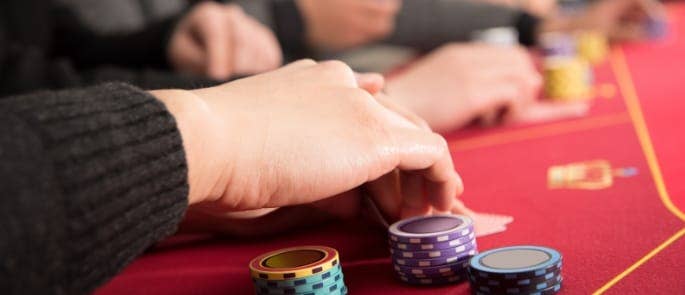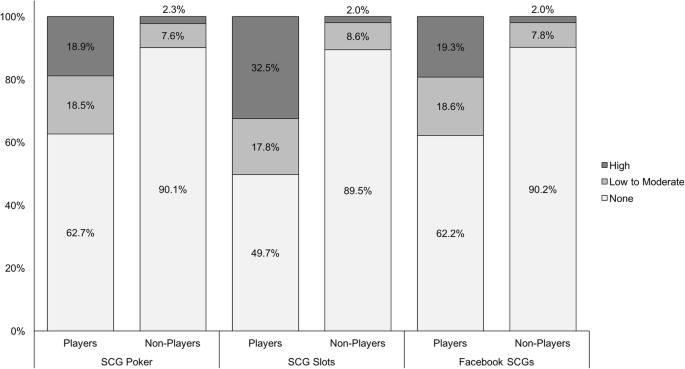Social Gambling Definition
- Social Gambling Definition
- Is Social Gambling Legal
- Gambling Social Studies Definition
- Social Gambler Definition
The Social Gambling Phenomenon
Early research reported by Morgan Stanley Research (2012) indicates that from a global perspective Social Gambling is a vastly popular activity. It is estimated that approximately 1/8th of the world’s population (800m people) plays at least one form of online social game per month. Around 20% of these are playing casino-style games; an activity referred to as Social Gambling.
“Social gambling” means gambling in which all of the following conditions are present: Terms Used In Hawaii Revised Statutes 712-1231 Corporation: A legal entity owned by the holders of shares of stock that have been issued, and that can own, receive, and transfer property, and carry on business in its own name. Social gamblers consider gambling to be a valid form of recreational activity and maintain full control over the time, money and energy they expend on gambling. They consider the cost of gambling to be payment for entertainment. What Is Problem Gambling and Gambling Addiction? Social gambling is, in common parlance, a game played primarily for fun or to socialize. It is typically among friends, family, neighbors, or co-workers and takes place in a private location (for example, in the house of one of the participants), not a public area or a commercial venue/business.
What is Social Gambling?
Social Gambling is a broad definition that covers a vast range of software programs that enable persons to play gambling-like games either individually, or within a social network.
Social Gambling encompasses a wide range of software applications that have distinct characteristics. At present, it is difficult to present with confidence a bona-fide classification of Social Gambling types when so little is understood about the structural and situational characteristics.
However, the following classification has been proposed as a starting point to be amended as knowledge and understanding of the phenomenon develops:
Freemium Gambling Applications
These refer to free-to-play gambling-like games which are available as apps to be downloaded to one’s PC, Tablet or Smartphone. Although these games are free, they enable participants to purchase extra credits with real money, to enhance game play with additional features.
Social Networking Site Freemium Gambling Games
These games are identical to Freemium Gambling Applications outlined above, except that rather than existing as a downloadable app the games are embedded within an existing social network, such as one’s Facebook or MySpace account. Embedding the game within an existing social network enables additional features which may enhance game play such as engaging in posting scores on leaderboards and engaging in tournaments and sharing rewards with peers.
Real Money Gambling Applications
These are gambling games that can be downloaded to one’s PC, Tablet or Smartphone where one can gamble real money with the opportunity to win real money as prizes.
Social Networking Site Real Money Gambling
These games are identical to Real Money Gambling Applications as described above, except that they are embedded within an existing social network, such as one’s Facebook account.
Why is Social Gambling a worthwhile Research Topic?

Ultimately, Social Gambling is very prevalent leisure activity that is not well understood, and little is known about the potential consequences, both positive and negative, of participation.

As identified by Morgan Stanley Research (2012), Social Gambling is already highly prevalent and is projected a rapidly expanding and profitable global industry. Without detailed knowledge about the behaviour in terms of what types of people play such games, and the outcomes of participating in Social Gambling, it is difficult to determine suitable social policy and regulation guidelines.
Further Reading:
An Overview of Social Gambling –
An in-depth report on the Social Gambling Industry:
§712-1231 Social gambling; definition and specific conditions, affirmative defense. (a) Definition. 'Social gambling' means gambling in which all of the following conditions are present:
:max_bytes(150000):strip_icc()/84427909-56a21ddb3df78cf77272151b.jpg)
(1) Players compete on equal terms with each other; and
(2) No player receives, or becomes entitled to receive, anything of value or any profit, directly or indirectly, other than the player's personal gambling winnings; and
(3) No other person, corporation, unincorporated association, or entity receives or becomes entitled to receive, anything of value or any profit, directly or indirectly, from any source, including but not limited to permitting the use of premises, supplying refreshments, food, drinks, service, lodging or entertainment; and
(4) It is not conducted or played in or at a hotel, motel, bar, nightclub, cocktail lounge, restaurant, massage parlor, billiard parlor, or any business establishment of any kind, public parks, public buildings, public beaches, school grounds, churches or any other public area; and
(5) None of the players is below the age of majority; and
(6) The gambling activity is not bookmaking.
Social Gambling Definition
(b) Affirmative defense:
(1) In any prosecution for an offense described in [section] 712-1223, 712-1224, 712-1225 or 712-1226, a defendant may assert the affirmative defense that the gambling activity in question was a social gambling game as defined in [section] 712-1231(a).
(2) If the defendant asserts the affirmative defense, the defendant shall have the burden of going forward with evidence to prove the facts constituting such defense unless such facts are supplied by the testimony of the prosecuting witness or circumstance in such testimony, and of proving such facts by a preponderance of evidence.
(c) In any prosecution for an offense described in this part the fact that the gambling activity involved was other than a social gambling game shall not be an element of the offense to be proved by the prosecution in making out its prima facie case. [L 1973, c 201, pt of §1; gen ch 1993]
COMMENTARY ON §712-1231
Section 712-1231 is a completely new and rewritten section set forth by Act 201, Session Laws 1973. This section defines 'social gambling' as gambling activity that meets all the prescribed conditions. These conditions are: (1) that all players engage as contestants on 'equal terms'; (2) that no profiting be involved--other than the player's winnings; (3) that it should not be conducted at certain enumerated places, such as hotels, school grounds, public parks, any business establishment, etc.; (4) that no minor be involved in the game; and (5) that the gambling activity is not bookmaking. (Senate Standing Committee Report No. 806 (1973).)
With respect to the concept of prohibiting gambling in enumerated places, the Standing Committee Report states:
'Your Committee notes the addition of the concept that gambling in certain enumerated places such as hotels, public parks, etc.-- is prohibited and that gambling conducted in such places is not to come within the protected confines of 'social gambling.' It is felt that this addition to the law clarifies the Legislature's intent to prevent the intrusion of hotel and casino type operations into this State, as well as prevent exposure of gambling to children in public parks, school grounds, etc.
'In this connection, casual gambling activities in a social context, involving contests of skill, and conducted in places other than those enumerated in the law, such as casual bets between golfers or bowlers would be 'social gambling'.'
Section 712-1231 provides that in any prosecution for an offense described in §712-1223, 1224, 1225, or 1226, the defendant may assert the affirmative defense that the gambling activity was a social gambling game as defined in this section. In respect thereto, the Standing Committee Report No. 806 (1973), Senate Judiciary Committee, states:
'There has been considerable concern whether the affirmative defense provisions of the Hawaii Penal Code are constitutional. In that regard, your Committee understands that statutorily prescribed affirmative defenses have been held constitutional. See Territory of Hawaii v. Shizuichi Yamamoto, et. al., 39 Haw. 556 (1952); McKelvey v. United States, 260 U.S. 353 (1922); United States v. Sidney B. Rowlette, et. al., 297 F.2d 475 (1968); and U.S. v. Carl Oslin Rumzy, Jr. 446 F.2d 1184 (1971).
'A major change affected is the erasure of any mandatory requirement that the defendant utilize this affirmative defense. We note that this is an area of great concern. That is, whether the affirmative defense in the existing law forces the defendant, as a legal requirement, to testify in potential self- incrimination.
'Without addressing ourselves to any other application of the affirmative defense in the Hawaii Penal Code, your Committee notes the existing law was to provide in §712-1231(b) that a defendant's resort to the affirmative defense is discretionary. See People v. Felder, 334 N.Y.S. 2d 992 (1972).
Is Social Gambling Legal
'There appears to be some confusion as to the prosecutor's burden of proof in relation to the defense of social gambling. It is intended that the prosecution should not have the burden of proving as part of its prima facie case, that the gambling activity in question was other than a social gambling game. Accordingly, an explicit statement to that effect was included in §712-1231(c).
'In contrast, it is the intent that the defendant shall be entitled to acquittal on the basis of the affirmative defense only if the trier of the facts finds by a preponderance of the evidence the facts constituting the affirmative defense. In other words, the defendant has both the burden of going forward with the evidence and the burden of persuasion by a preponderance of evidence with respect to the affirmative defense of social gambling.'
Case Notes
Defendants did not prove that no person other than players received or became entitled to receive anything of value. 2 H. App. 606, 638 P.2d 338.
Gambling Social Studies Definition


Social Gambler Definition
Although it may have been error admitting into evidence, as expert opinion under HRE rule 702, officer's testimony concerning subsection (b), the social gambling defense, where defendant was not entitled to this defense in a prosecution for promoting gambling in the first degree under §712-1221(1)(c), error was harmless. 92 H. 98 (App.), 987 P.2d 996 (1999).